REBEL IN THE RYE director Danny Strong’s directorial debut is about the birth of a writer and how that writer, a World War II veteran, was transformed by war. The writer, J.D. Salinger, would go on to write an American masterpiece that would change the world. And then the masterpiece would change him.
Danny Strong is the co-creator and executive producer of the hit FOX drama EMPIRE, of which he has written and directed numerous episodes. The series won Best Drama for the NAACP Image Awards and was nominated for the Golden Globe, Critics Choice Awards, AFI Awards and Television Critics Association Awards for Outstanding Achievement in Drama and Program of the Year.
He created the show with director Lee Daniels, whom Strong worked with on the film THE BUTLER. Strong wrote the screenplay and also produced the film, which starred Forest Whitaker and Oprah Winfrey. It was the sleeper hit of 2013 grossing over $100M in the US box office. He was also a co-writer of the Lionsgate franchise films THE HUNGER GAMES: MOCKINGJAY (Part I and II).

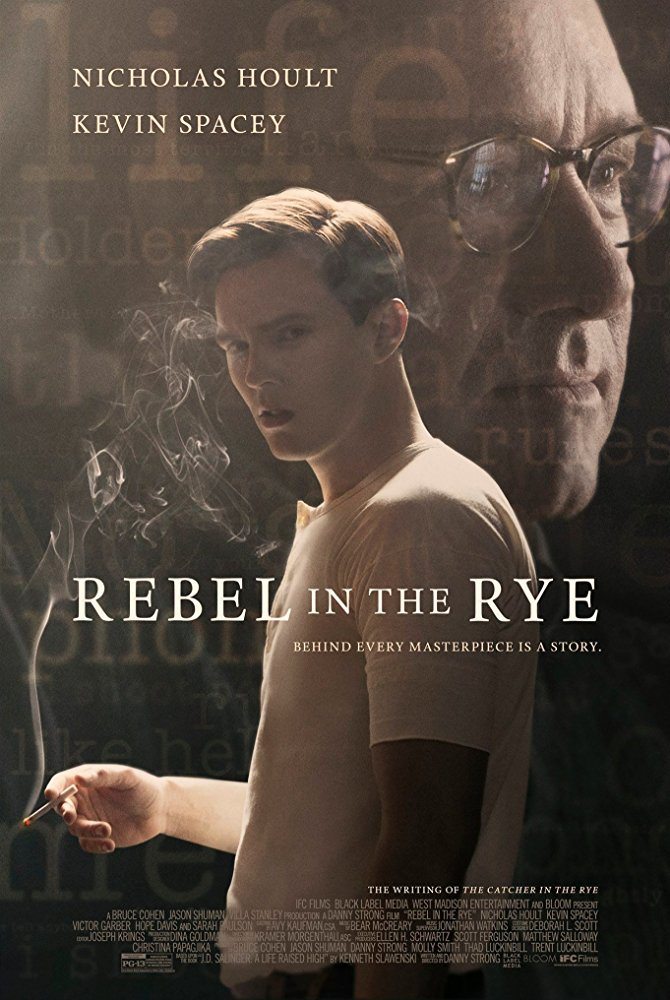
I met Danny at the IFC Films and Writers Bloc Presents special sneak screening of REBEL IN THE RYE at the Landmark Theater in Los Angeles, CA.
“The writer that created the masterpiece THE CATCHER IN THE RYE,” Danny said to me, “was not the writer that existed before going to war.” As a veteran, that struck a chord with me. We agreed to a have a conversation about it the next day.
***
Hey Danny
Hey Randy. How are ya?
Good. Good. Thank you so much for talking with me about this.
Oh, man. Absolutely. I’m thrilled you’re covering it. I’ve been really pushing regarding veteran outreach with this project. So for you to do a story, I’m thrilled.
I see potential for a positive influence on veterans.
It was a huge inspiration for me in writing the piece. This is exactly what I want to do.
There’s a line of dialogue in the film that Salinger’s longtime literary agent, Dorothy Olding (Sarah Paulson) says to his mentor Whit Burnett (Kevin Spacey) that Salinger was a better writer after the war, but that he was a more damaged person. Does war make a better man? Does trauma make a better writer?
I don’t want to answer in “absolutes” because I don’t know, but I do know that J.D. Salinger’s writing became much more profound, more enriched and went to a whole other level of quality after the war. His writing before the war had a very clever, sarcastic J.D. Salinger voice that dealt with issues of Upper East Side life in a way that was very fun and truthful but there was a frivolity to it. After the war his writing had another level of depth and complication. It clearly had to have been influenced by his experiences in war. The writer that created the masterpiece was not the writer that existed before the war.
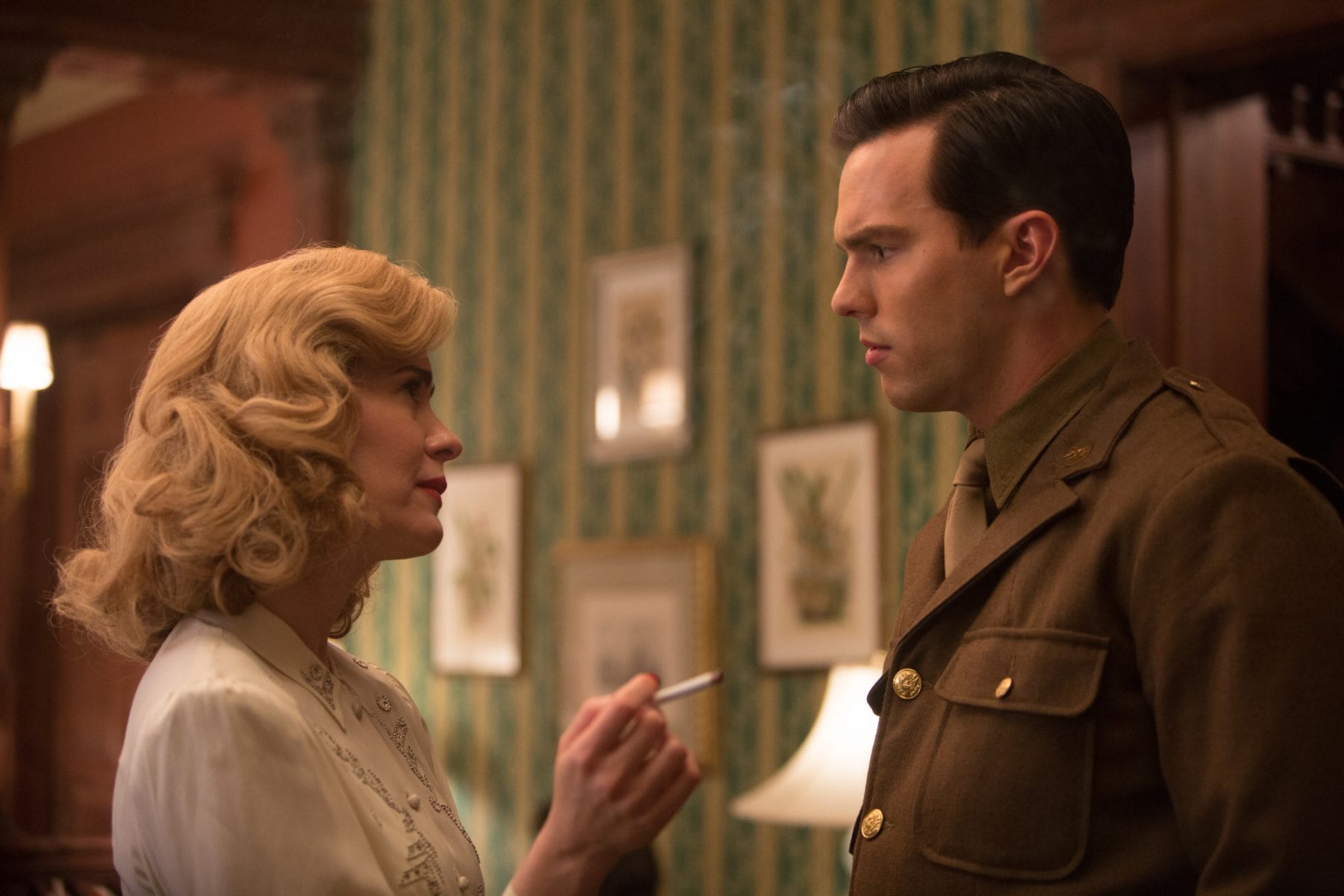
We enlist very young people to fight our wars. Do you think there is any correlation between Salinger’s core theme of childhood innocence and his military experience which, in essence, is the destruction of childhood innocence?
I think there’s a huge correlation. It’s all speculation but it seems so clear, right? You have this guy that saw so many young people die around him. Then he goes on and writes this book THE CATCHER IN THE RYE and all the “Catcher in the Rye” wants to do is save children. That’s what blew my mind when I began to understand the story of J.D. Salinger. I had no idea that he was a veteran of World War II. I had no idea that he’d written this masterpiece after his experience in combat. I had no idea that his successful works were written after the war. It made so much sense to me. It was profound. He created one of the great American novels after experiencing one of the darkest horrors of the twentieth century.
Salinger was from the Upper East Side of Manhattan. He was probably exposed to a diverse group of young men in his unit. Do you think that his exposure to men of different classes contributed to the maturity in his writing?
I can’t answer that. It would only be speculation. There are some letters he wrote about being around different classes of people that he’d normally not been around. They are kind of amusing letters. I didn’t find them condescending. It was just different. He got kicked out of his first high school after his sophomore year and went to military school. He really took to it. He had a military discipline and was enthusiastic about enlisting after the attack on Pearl Harbor. He was rejected multiple times for a “slight heart condition.” He kept insisting until the war got to a certain point where they started eliminating restrictions.
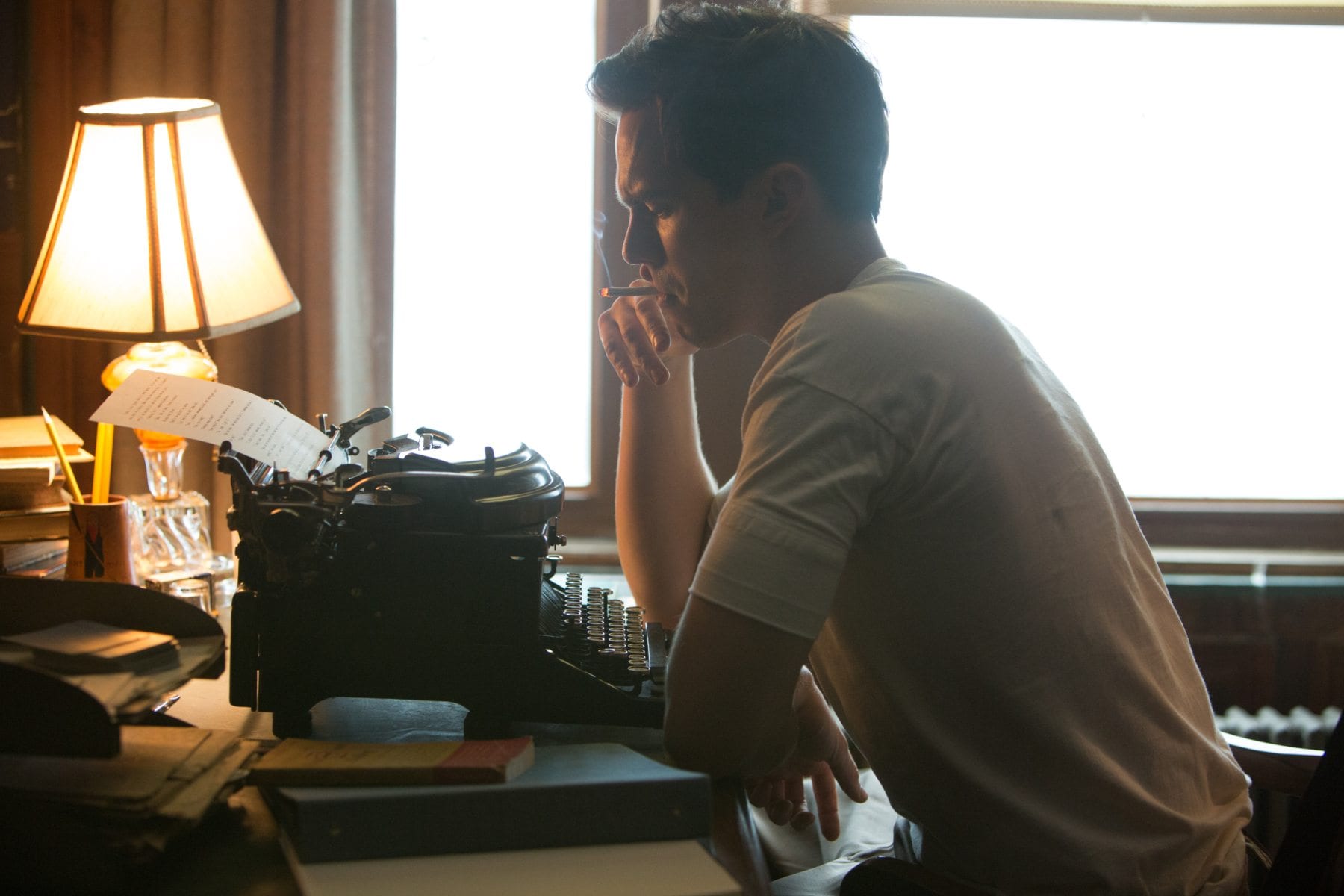
You mentioned that the “Catcher” wants to save children. To me that is a metaphor for a desire to serve others. One thing I know about military veterans is that we want to continue to serve even after we get out of the military. When we met, you shook my hand and thanked me for my service. I want to say the same thing to you. I think that telling stories is a service. Do you think that telling a great story is a service?
For me it is. I try to imbue social justice into all of my stories. This story is not about social justice but it is ultimately, a story about war. It’s about what war does to people. It’s not an anti-war story, whatsoever. Do you agree?
Yes. I do.
There are no protests. It’s literally the tale of a soldier and what happened to him after the war. That’s what made it, to me, worthy of a movie and worthy of several years of my life. Because there were two stories. There’s the story of the birth of a writer, which is obviously very personal to me. But then there’s this other story that I think is so profound and it’s a story that I think people need to hear. That’s what I like to do as a storyteller. I wrote this movie THE BUTLER, so much what inspired me to write it was to tell the story of the civil rights movement. To infuse political, historical, social issues into mainstream entertainment. It’s very much what guides me in so many of my projects. Even in the TV show EMPIRE. So much about that was attacking homophobia, especially in season one when we were doing our initial concept. So, you saying thank you to me for my service is especially meaningful to me. I try not to wear it on my sleeve or make a big deal about it. But it’s very personal to me because it’s what I try to achieve in my work.
Do you think it’s possible to continue to get mainstream projects made that address your social, historic and political concerns?
Here’s the funny part. I’ve worked on mainstream projects that didn’t have the political, historical and social justice aspect to them. The ones that were supposed to be the no-brainers, the trash, the riff-raff, those scripts didn’t get made. Here’s the reason why. Although those types of films get made all the time, they have to get hit by a lightning bolt of luck to make it past the finish line. Whereas, the projects I do which are mainstream but also address important issues tend to rise to the top. The best actors and directors want to be involved with those kinds of projects. The material attracts top talent which leads to getting the project made. The projects I work on that don’t attract top talent become just a fortunate piece of business that happens to me several times a year. It’s sort of an interesting thing that the only real success I’ve had is when I’ve not chased mainstream storytelling.
Do you think J.D. Salinger’s life was a tragedy?
That’s a terrific question. I…wow…What do you think?
One of the things I like about your film is that you left it open to interpretation. My view is that his life was troubled, but not tragic. He was married. He had kids. He volunteered in his community.
I love that you came away with that. People come away from it with different things. For me the ending is inspiring. Salinger dedicated the rest of his life to his work. He’d learned his lesson. I call it “Writing Nirvana.” At the end of the film he’s achieved this writer’s Nirvana where he can just write for the rest of his life and truly get nothing in return. It seems to me that’s what he truly wanted. I bet it made him happy.
How do you feel about art as a way of healing for our veterans?
I think it an amazing form of healing. A major theme in the story is about art being formed from the trauma of war. It was certainly healing for Salinger. For other veterans, how could art not be healing? You get to express what you are feeling inside of you. It could be one of the ways to get out maybe some of the things that are trapped inside of you.
Many people underestimate what it’s like to go to war and survive. A lot of people underestimate what it takes to go to Hollywood and achieve success. Do you believe that luck plays a part?
For me, I feel that I’ve had some lucky moments in my career. I’ve also had lots and lots of rejection and kept moving forward. When it seemed that everything was stacked against me over and over and over again, I kept at it. So my success doesn’t feel like luck. It feels like hard work, perseverance, dealing with things that can be depressing, painful, but then pushing through it. Lucky breaks happened, too. But it wasn’t like I was hanging out at a soda shop and got discovered. I was pounding the pavement for years and years and years. I was endlessly getting rejected, both as an actor and as a writer.
They say the best soldiers are unreasonable, that no reasonable person would go through the pain that it takes to be the best. Do you think Salinger was unreasonable?
Yes. And I love that. It’s a beautiful sentiment and I’ve never heard it expressed like that. I think it’s so true, and I think Salinger is the perfect example of it.
Do you have any quarrels with fame, with being recognized in public?
I don’t think about it. I’m not that famous. I think there’s a group of people that dig what I’m up to and that feels awesome. I’ll be walking around and someone will recognize me from Gilmore Girls and it will make them happy. I won’t have even done anything. But other actors, they live with a level of fame that, I do know. Some people are incredibly cool about it and everything is fine. They don’t take themselves too seriously. There are others that take themselves way too seriously and torture themselves over these things. They might have been pains-in-the-asses even if they hadn’t become famous.
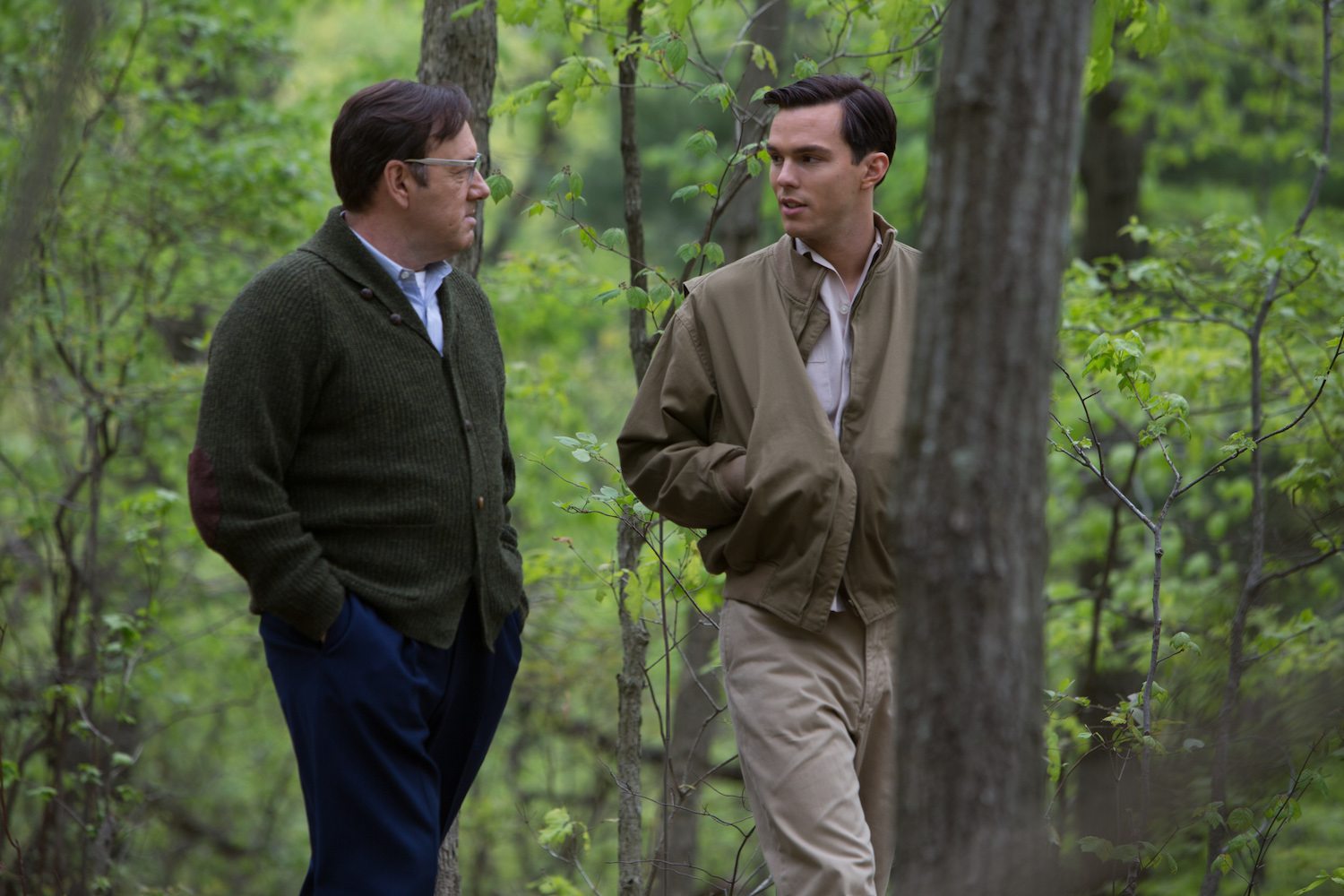
Were there interesting aspects of Salinger’s life that you purposely avoided because they were not central to the theme of the story you wanted to tell with this film?
A lot. You can’t do it all. You’re making a movie. You have to tell a story and be clear about what your story is. My story is about the birth of a writer, how the writer was transformed by the war and how through the war, he would go on to create a masterpiece that would change the world. And then that masterpiece changed him. I think it’s a terrific story and one that I was fascinated by. There are other elements to Salinger’s story that I could have done. My movie ends when he’s 35. One could focus on the rest of his life as an older man in Cornish, New Hampshire, what his life was like in Cornish. My focus was about his birth as a writer and his masterpiece. How they came to be.
You touched on elements of his psyche that would influence his later life. His attraction to a much younger woman, for instance.
I felt like I had to deal with some of those elements of his life, at least in subtext. They are widely known and it would have felt like I was white-washing over them if I didn’t deal with them on some level. Those elements made for some very interesting scenes.
It’s an extraordinary cast. How closely did you work with your actors? How hands-on?
Well, they are the best of the best. I worked very closely with them in a very traditional way. When you work with actors at their level you’re not transforming them. You’re not molding their performance. You’re tweaking them at times. You’re trying different things. It’s a collaborative experience. You’re trying to ensure a creative environment for everyone with a very light hand in guidance. That’s how I work.
In the military, we had tools. We had machine guns, grenades, utility belts, etc. Our tools were an extension of our bodies and what we wanted to achieve. As a writer, what are your tools?
I have to tell you that all the stuff you’re talking about is so interesting to me. Coming up with this in the form of questions is just really cool. For me, being passionate about things is a huge tool for me. I think that anger is a big tool for me. Then I think that a large tool of mine is my focus. Focus is a major tool for me. I meditate every day. That’s another thing I connected with in Salinger’s life, that he meditated. Maybe if a veteran sees my movie and somehow benefits from it by learning that Salinger came through the war, meditated and ultimately wrote this masterpiece. That would be so inspiring.
In his unpublished pieces, do you think there is a story in there about a soldier?
I have no idea but in the documentary SALINGER, and in a New York Times article, I read loglines for five of his unpublished books, what each book was going to be about. One of those books was about his experience just after the war, hunting Nazis in Germany. That’s the one I wanted to read most. I wouldn’t be surprised at all if he’d written about a soldier. I think that he probably did.
Veterans with trauma from war sometimes use denial, making up stories to fill in the gaps of why they did certain things, to justify their actions. I believe that it’s a coping mechanism. You make up stories for a living. You work in Hollywood. How do you feel about lying?
I love it when characters are liars. On the TV show EMPIRE, Lucious Lyon is a liar. He lies all the time. It’s a characteristic that can be very entertaining and manipulative. Lucious is a bad guy, his name is Lucious after all. But I think the storyteller should not lie. I think it’s the great sin of the storyteller. One of the things that drew me to Salinger was his commitment to telling the truth. The truth being the emotional reality of his characters. I was drawn to his ability to tell the truth of their emotional experiences to infuse realism. He was coming from a time when stories were very fake, phony or corny. His dedication to realism is a defining characteristic.
You have a successful career as an actor and as a writer. As a first-time director, do you feel that you have found your director’s voice in this film?
I don’t know. I think my voice is in this film in a way that I’m very happy with. I don’t know if I’ve found my voice as a director. Hopefully, it will continue to evolve as I get to direct more movies. I know that my voice as a writer has changed over the years. My voice as a director probably will, too, because we change, as people.
Whit Burnett advised Salinger to write what was in his heart instead of writing to show off his talent. Did you direct this film to show off your talent or to tell a story from your heart?
Well this is a story that was from my heart. But I also did it because, as a writer of films that I didn’t direct, I was always in the position of trying to convince someone else to do something. I concluded that if I wanted to have the final say, I’d have to direct my own film. That’s what I did.
###
REBEL IN THE RYE
Directed by: Danny Strong
Writers: Danny Strong, Kenneth Slawenski (based on “J.D. Salinger: A Life”)
Starring: Nicholas Hoult, Kevin Spacey, Hope Davis, Victor Garber, Zoey Deutch, Sarah Paulson
Production company: Black Label Media
Distributed by: IFC Films
Release date: September 8, 2017 (US); January 24, 2017 (Sundance)
Run time: 106 minutes
Randy Ryan, Lima Charlie News
Randy Ryan is a contributing writer with Lima Charlie News, and a U.S. Army veteran of the XVIII Airborne Corps. As a character actor for over 15 years, Randy has been featured in numerous high-profile projects for film and television. Randy’s passion for veteran causes extends far beyond his entertainment contributions. He led the inner-city gardening program, Teaching Gardens to prominence in South Los Angeles. There are now over 400 Teaching Gardens nationally. He is also the national spokesperson for the Farmer Veteran Coalition, which helps post 9/11 combat veterans develop viable careers in agriculture.
Lima Charlie provides global news, insight & analysis by military veterans and service members Worldwide.
For up-to-date news, please follow us on twitter at @LimaCharlieNews
In case you missed it:

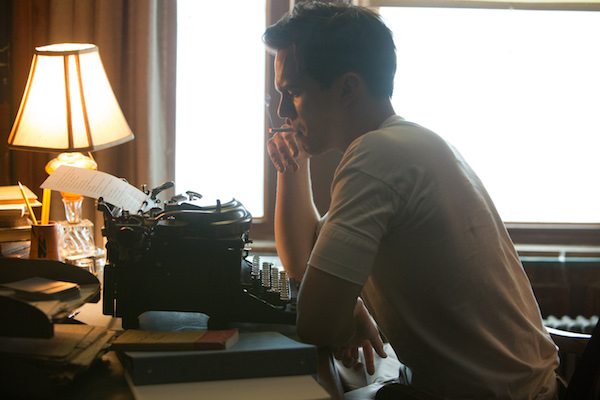
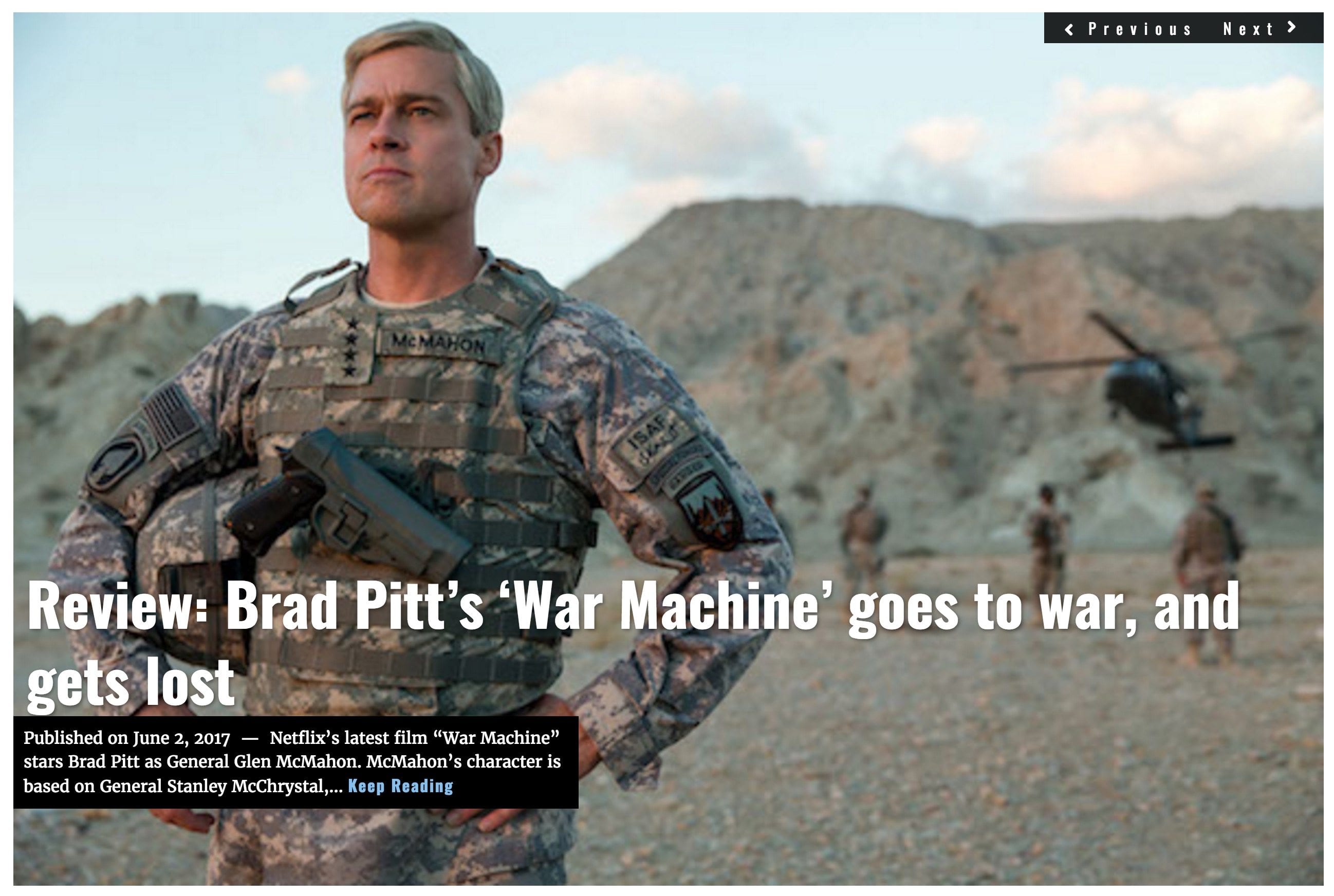
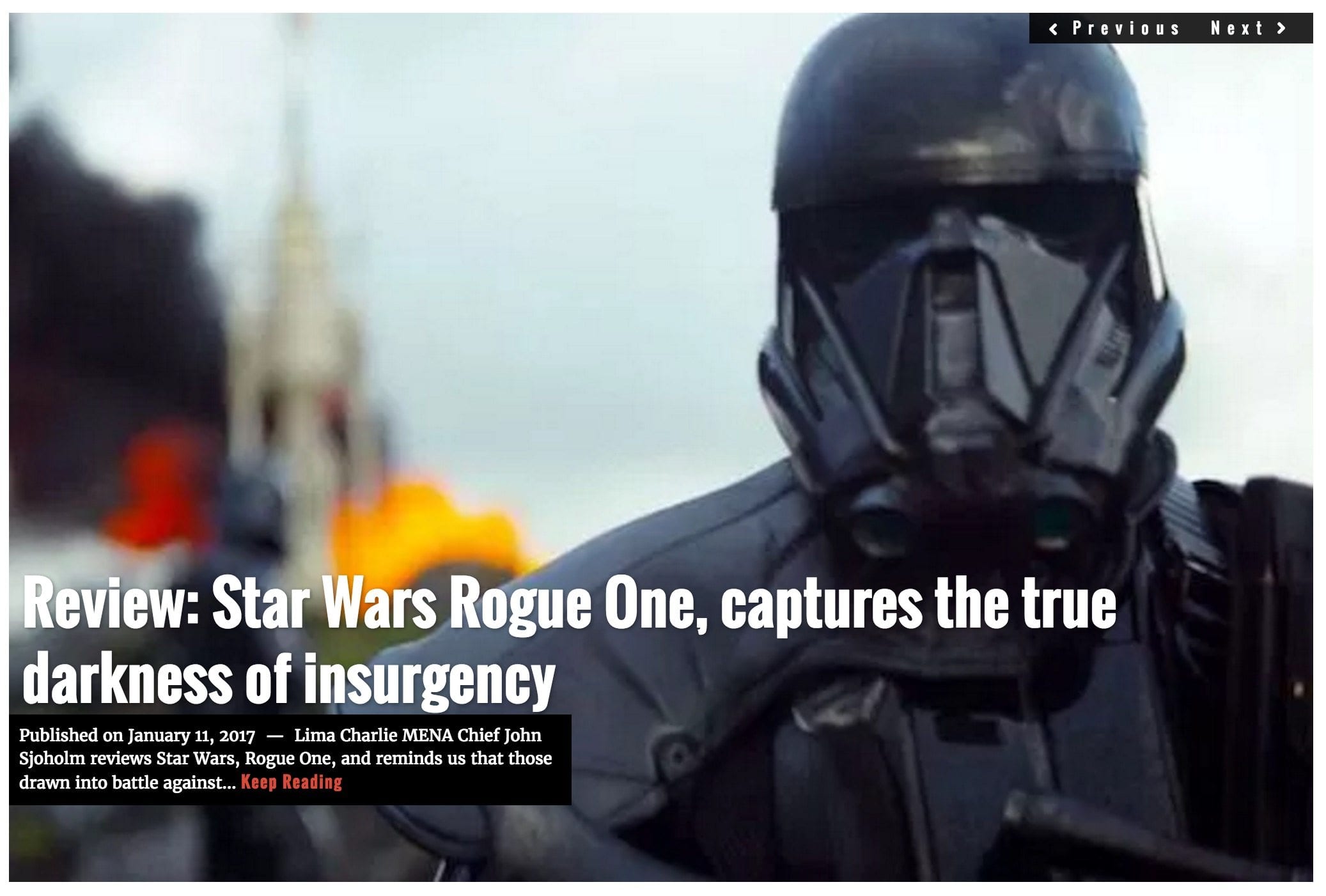
![Image Memorial Day may soon be a remembrance of democracy and those who had the courage to defend it [Lima Charlie News]](https://limacharlienews.com/wp-content/uploads/2018/05/Memorial-Day-may-soon-be-a-remembrance-of-democracy-and-those-who-had-the-courage-to-defend-it-Lima-Charlie-News-480x384.png)
![A Trump war crime pardon dishonors us all [Lima Charlie News]](https://limacharlienews.com/wp-content/uploads/2019/05/A-Trump-war-crime-pardon-dishonors-us-all-Lima-Charlie-News-480x384.png)
](https://limacharlienews.com/wp-content/uploads/2019/03/Remembering-Becket-A-mothers-search-for-answers-480x384.png)
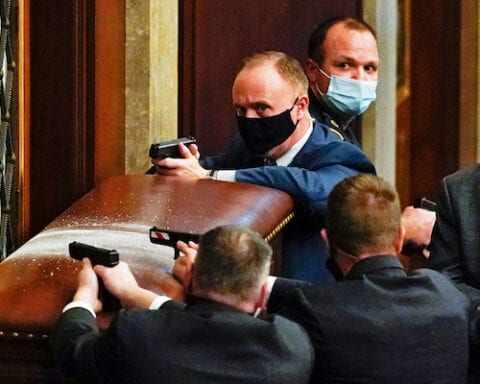


![The Mind of Bolton - AUMF and the New Iran War [Lima Charlie News]](https://limacharlienews.com/wp-content/uploads/2019/05/Inside-the-mind-of-Bolton-Lima-Charlie-News-main-01-480x384.png)
![Image Memorial Day may soon be a remembrance of democracy and those who had the courage to defend it [Lima Charlie News]](https://limacharlienews.com/wp-content/uploads/2018/05/Memorial-Day-may-soon-be-a-remembrance-of-democracy-and-those-who-had-the-courage-to-defend-it-Lima-Charlie-News-150x100.png)
![A Trump war crime pardon dishonors us all [Lima Charlie News]](https://limacharlienews.com/wp-content/uploads/2019/05/A-Trump-war-crime-pardon-dishonors-us-all-Lima-Charlie-News-150x100.png)